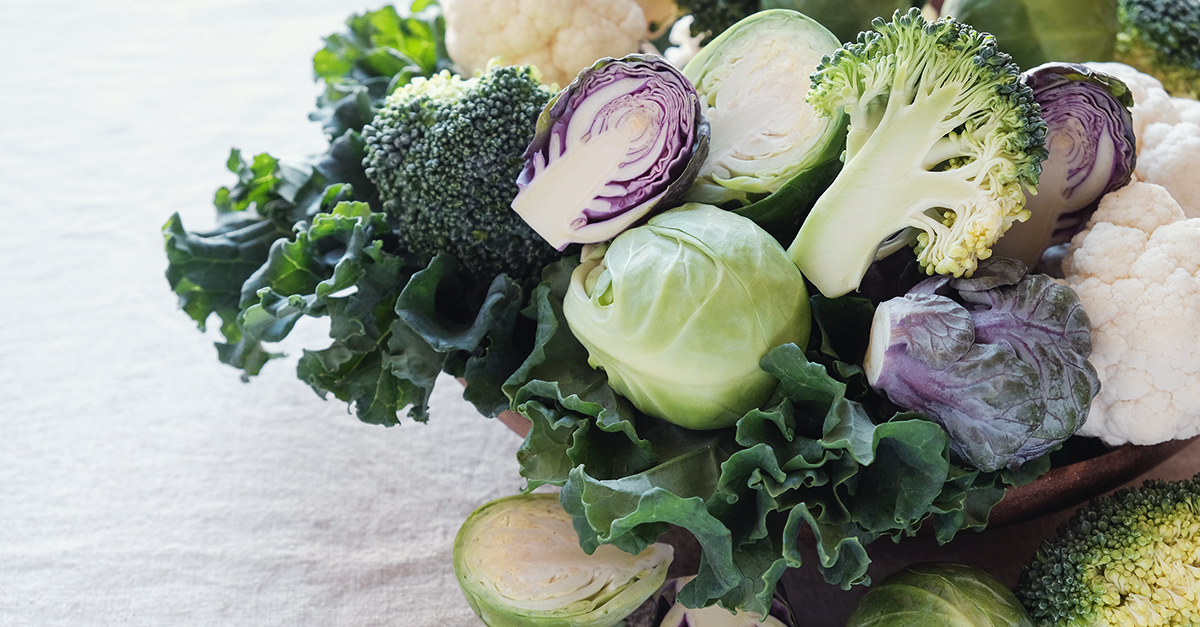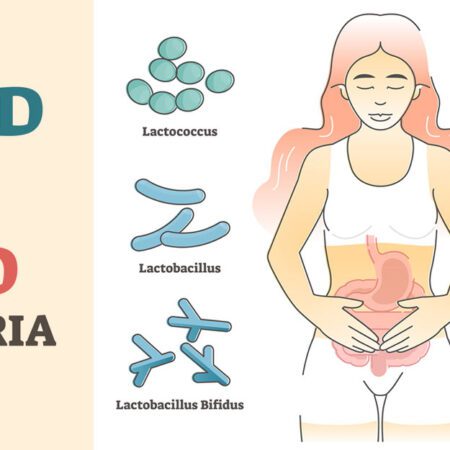Want a Healthy Liver? Eat Your Cruciferous Veggies!

Protect Your Body’s Built-In Detoxifier with Cruciferous Vegetables
Your liver is your body’s largest internal organ, so it’s no surprise that it plays a large role in your health. It’s responsible for helping break down (or store for later) the nutrients your body needs and get rid of the toxins it doesn’t. But your liver must be in good condition to perform these and other important functions. And one way to keep your liver working well is by eating your veggies, specifically sulfur-rich cruciferous vegetables.
Here, we look at the liver’s important role as the body’s primary detox organ and how cruciferous vegetables help keep it functioning optimally.
How Your Liver Takes Care of You
One of the liver’s main purposes is to protect you from harmful or poisonous substances such as pesticides, pollutants, medicine, alcohol, caffeine, and more. The liver performs this critical function in a two-phase approach, known as the Phase I and Phase II liver detoxification pathways.
In Phase I, your liver converts toxins into less harmful substances. This process produces byproducts which also can be dangerous to your health. This is when Phase II kicks in.
In Phase II, your liver neutralizes the byproducts from Phase I and other remaining toxins. It does this by converting fat-soluble toxins into water-soluble substances, which are easier for the body to eliminate through bile, urine, and stool.
If your liver isn’t doing its job fully, fat-soluble toxins can end up stored in your body’s fat tissue. When this happens, you may experience side effects as toxins are released during exercise or periods of stress. These can include headaches, poor memory, stomach pain, nausea, fatigue, dizziness, and palpitations.
Diseases of the liver can also occur when the liver isn’t functioning at its best. This is why it’s important to treat this hard-working organ with the best possible care.
Say Hello to Cruciferous Vegetables
What you eat plays an important role in your health – including how well your liver functions.
Cruciferous vegetables are part of the Brassicaceae family of plants, commonly known as the mustard family. Some of them have a bitter taste – which may be why they aren’t everyone’s favorite. But there are lots of ways to prepare these veggies to bring out their natural goodness and deliciousness. (Start with this video for three creative ways to cook Brussel sprouts.)
Here are more examples of cruciferous veggies:
- broccoli
- kale
- cauliflower
- cabbage
- radishes
- bok choy
- watercress
- turnips
- collard greens
- rutabaga
- arugula
How Cruciferous Vegetables Take Care of Your Liver
There are many reasons to love cruciferous vegetables. They are an excellent source of natural sulfur compounds, one of the things your liver needs to perform its critical work. Cruciferous vegetables are also bursting with fiber as well as a wealth of vitamins and minerals.
Because they are low in calories, cruciferous veggies are helpful for weight management and maintaining a healthy gut microbiome – both of which are key for liver health. Their high-fiber content encourages the gut microbiome to flourish. Research shows that diets rich in plants increase the microbial diversity of the gut. Conversely, less diversity in the gut microbiome is correlated with conditions such as obesity and type 2 diabetes.
Scientists are continuing to study the link between liver health and many common diseases. There is much research still to be done in this area, but many studies point to the potential positive role of cruciferous veggies. For example, they may also help prevent non-alcoholic fatty liver disease (NAFLD), an accumulation of fat in the liver. This disease is linked to obesity and increased potential for several cancers, including liver cancer. Cruciferous veggies contain a compound called indole which is associated with lower fat in the liver – one of the reasons these amazing veggies may be beneficial in preventing NAFLD.
Eat Food. Not Too Much. Mostly Plants.
“Eat food. Not too much. Mostly plants.” This is the mantra of Michael Pollan, author of In Defense of Food: An Eater’s Manifesto and professor of science and environmental journalism at the University of California, Berkeley. In his New York Times best-selling book, Pollan suggests that the path to health begins with eating ‘real’, or non-processed, food. He describes it as, “the sort of food our great grandmothers would recognize as food”. Vegetables play a starring role in the diet he recommends.
If you aren’t already a fan of cruciferous vegetables, you will be pleasantly surprised by the benefits they bring to your health and the versatility they’ll add to your meal plans. Expanding your usual vegetable routine also will help you achieve a good micronutrient balance and protect your liver.
A Healthy New Year, A Healthy New You
At Nature’s Link Wellness Center, we believe in healing the body naturally, without the use of medications or invasive treatments. Natural health consultations in Breaux Bridge, Louisiana focus on improving your health through a balance of proper diet, hydration, fresh air, sunlight, exercise, and rest. All recommendations are tailored to your individual needs, lifestyle, and goals. To find out more about liver health in Breaux Bridge, Lafayette, and the entire Acadiana area, call 337-332-2705 or reach us online.




